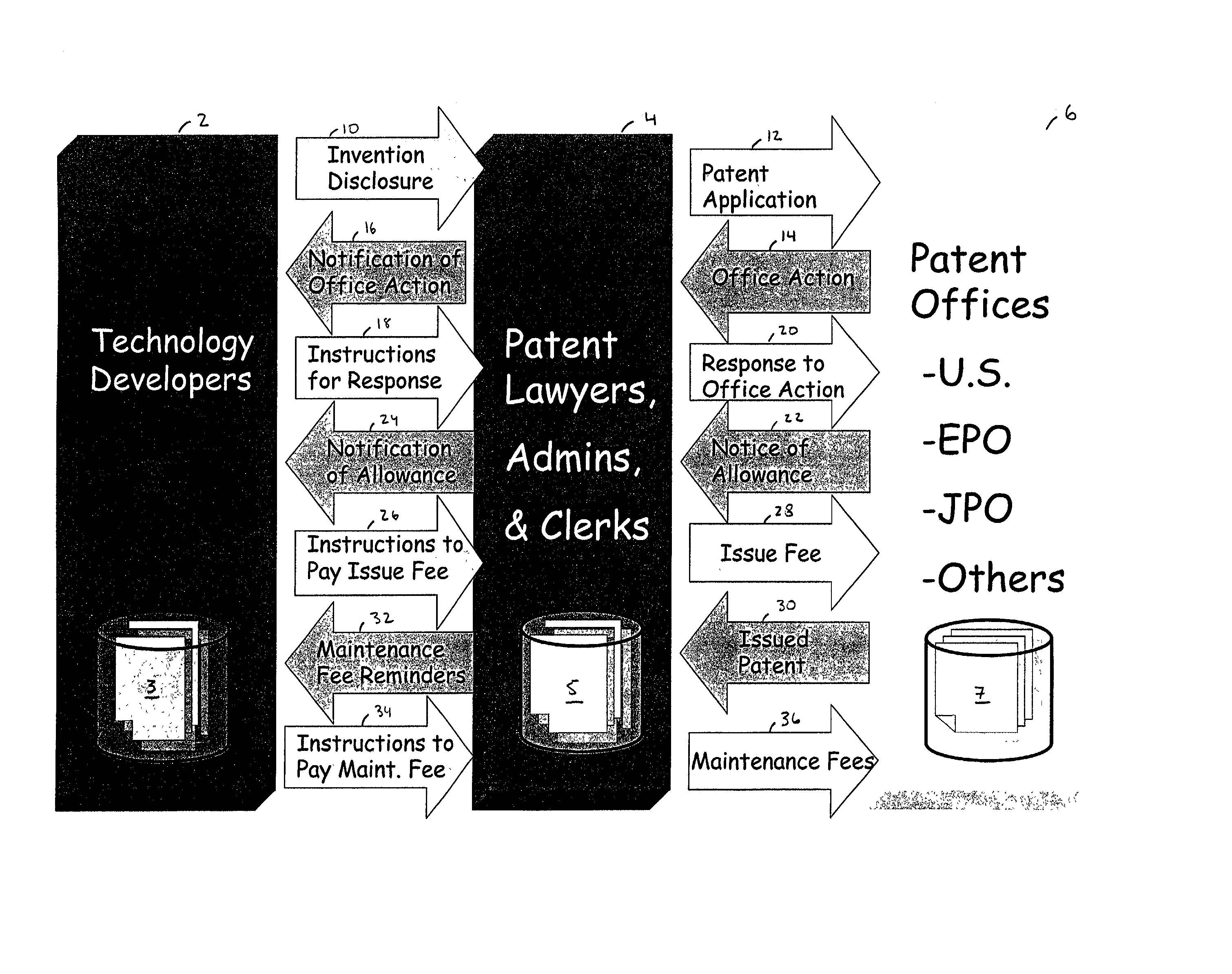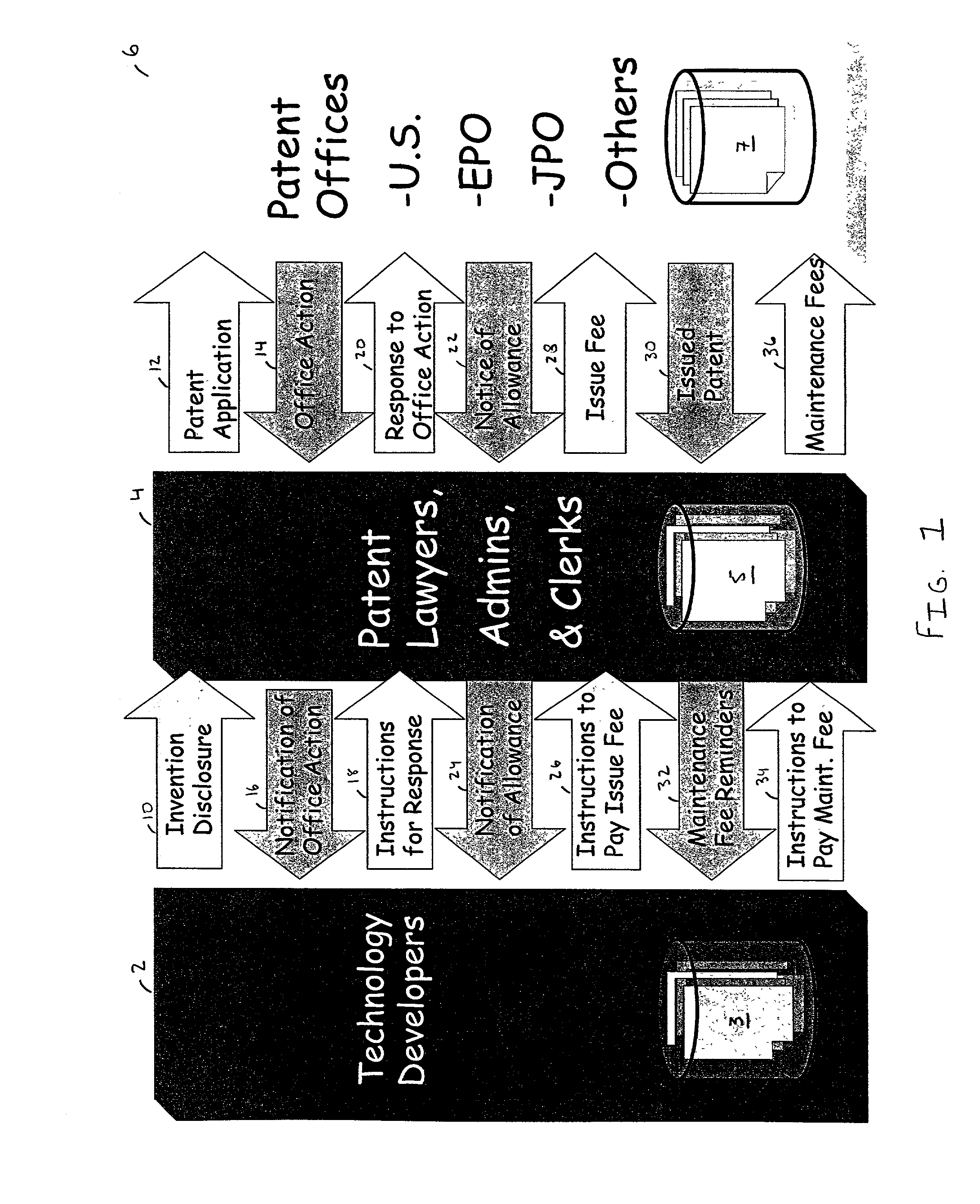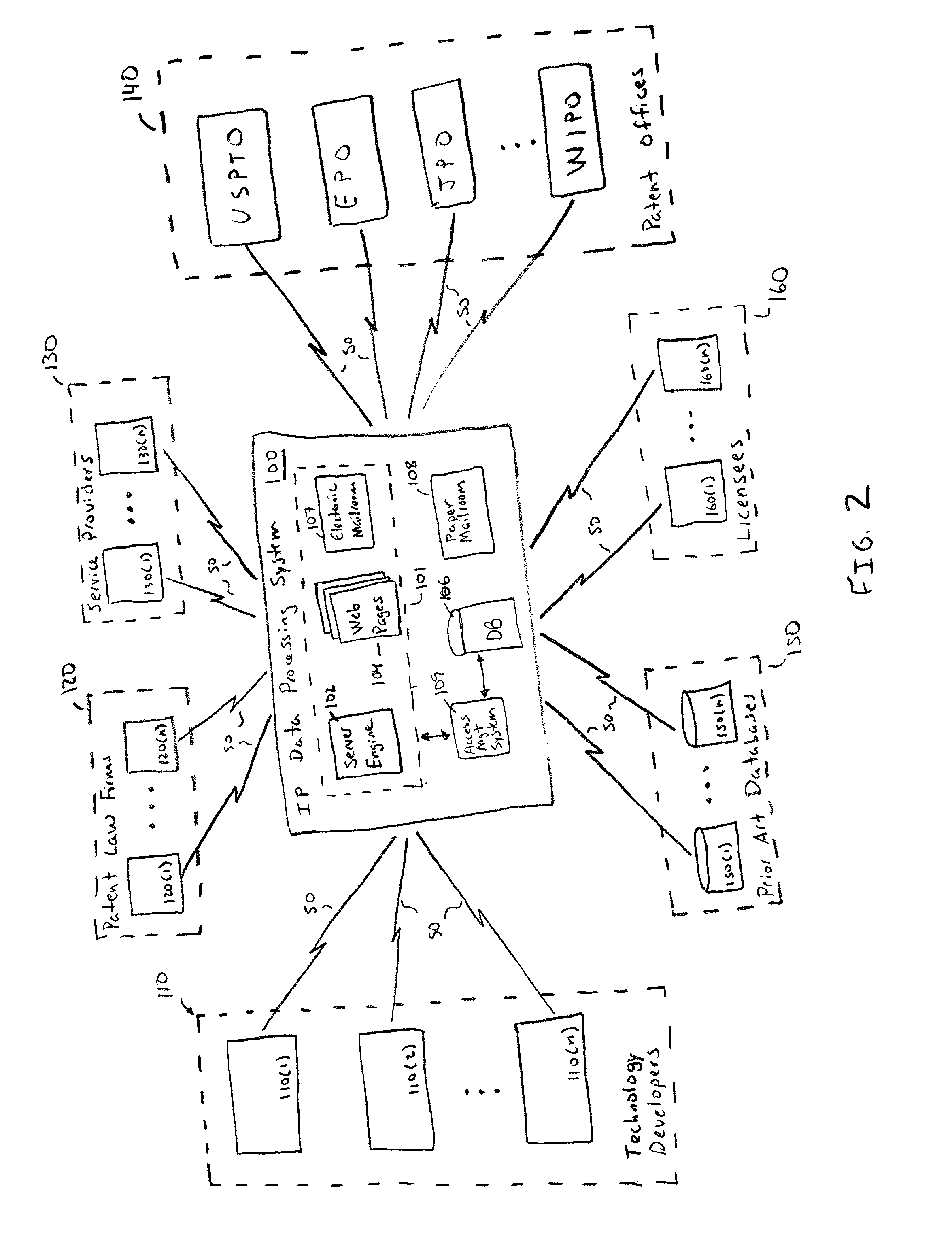Method of defining workflow rules for managing intellectual property
a workflow and intellectual property technology, applied in the field of defining workflow rules for managing intellectual property, can solve the problems of poor interface between services and law firms and/or technology developers, inability to track all the various due dates, and inability to optimize databases,
- Summary
- Abstract
- Description
- Claims
- Application Information
AI Technical Summary
Benefits of technology
Problems solved by technology
Method used
Image
Examples
Embodiment Construction
Disclosure Wizard
[0104] FIGS. 3A-3L are exemplary Web pages 104 generated by server engine 102 as part of the Invention Disclosure Wizard according to one embodiment of the present invention. These Web pages are presented to an inventor client system when the inventor client system activates the Invention Disclosure Wizard by selecting an icon (e.g., an html link) from a Web page presented to the client system, such as the inventor client system's Home page (not shown).
[0105] Once activated, the Invention Disclosure Wizard presents a Web page, such as page 40a shown in FIG. 3A, to the client system to prompt the client system to enter a title for the invention (field 42) and a list of inventors (fields 44a, 44b and 44c). The information entered in fields 42 and 44, as well as the information entered in the remaining fields of these exemplary Web pages, are mapped into appropriate tables in database 106. The fields can subsequently be altered up until the point where they are locked ...
PUM
 Login to View More
Login to View More Abstract
Description
Claims
Application Information
 Login to View More
Login to View More - R&D
- Intellectual Property
- Life Sciences
- Materials
- Tech Scout
- Unparalleled Data Quality
- Higher Quality Content
- 60% Fewer Hallucinations
Browse by: Latest US Patents, China's latest patents, Technical Efficacy Thesaurus, Application Domain, Technology Topic, Popular Technical Reports.
© 2025 PatSnap. All rights reserved.Legal|Privacy policy|Modern Slavery Act Transparency Statement|Sitemap|About US| Contact US: help@patsnap.com



